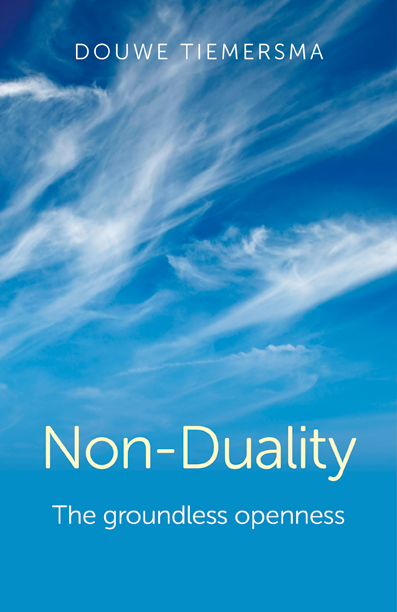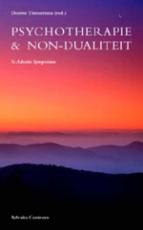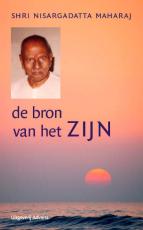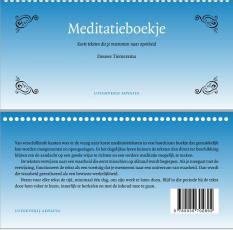Advaita Post Vol 13 #20 - --- With enlightenment...
November 27, 2012

Do you know this "groundless openness" as yourself?
In the extreme regions of being,
when all words have disappeared:
know this emptiness as your self.
Without a center you have your center in everything and everyone:
an ocean of love.
I love you all so much.
That remains, even though there is the knowledge of impermanence
and of being absorbed in That, the source of being.
in its absoluteness and eternity.
*****
Positive sounds
"The essential is so overwhelmingly present in me, no doubt is possible any more.
I can't deny it any longer and everything disappears into it, it is quiet, peaceful and calm.
I have great confidence that this process will continue by itself!"
"The body has been broken open, so too the mind.
Then the freedom
which streams behind me
flows right through me
and expands into space.
Surprising. It doesn't come from above.
Knowledge comes from above, direct knowledge.
Freedom comes from behind
interpenetrating me
In front of me is the peace which has broken everything open.
The role playing reaches its end.
The most-incredibly special role
emerges,
nameless.
I enter into it."
"There's just openness and infinite, infinite, infinite gratitude, and even infinite, infinite love, for you, through you, by you, for everything and everyone, which the impersonal life would and could reveal within this self-being.
I had no religious background but still, it was a sacred process."
*****
Text Satsang
Letting go
From an Advaita talk with Douwe Tiemersma in Gouda, March 12, 2003
Tonight it's good to take another look at letting go. It seems simple and clear: you have something, you let it go and then it's gone. Why is it frequently so much more difficult than that? Try to see it very clearly, so that you can get to know the mechanism with its forces. There is a situation in which there is something from you that you want to hold onto. Then it's clear that there's a separate person who has created an island with his own possessions consisting of a definitive boundary. On the other side of that boundary you have the not-mine, the other. Then there is the sense: if I let go of something it disappears from my little kingdom, from the sphere of myself. I don't want that, so I'll keep holding on to it. Notice how deep that instinct resides. What you must release belongs to your own sphere of being. When something is taken away from you there, you feel it in your heart, because you have connected your heart to it, you have identified yourself with it. Everything which contributes to your own identity, you defend. Of course sometimes you do let go of things, for example when moving or when you grow up. Something in your identity has shifted and you let go of a number of things that at one time you thought were so important. Your identity with it has disappeared, your own self-being has gone out of it, and so it's allowed to go. This is a letting go on a very limited scale, but it's also very good to see that here too it's about a shift of your identity through which certain parts that no longer belong to it are permitted to fall away. But the basic problem remains the same as long as there is still a person there with borders. Because then there will always be things that you will continue to find important, which you want to hold on to, because you've connected yourself to them.
There are two movements through which the matter can be fundamentally resolved. The one is: gradually lose all the things whose importance belongs to your personal sphere. How is that possible? When you take distance you see the relativity of all those things that initially you felt were so important. Precisely through the distance there is less and less self energy in those things because you have pulled yourself back out of it. The things come free, they aren't held on to any longer, you are no longer bound to them. Other people also come free, you no longer hold on to them. As the process proceeds then where are you still bound? Now you have a new identity that isn't bound by all the different forms of ownership. From this expansive identity it's possible to release all that old. So that can become quite radical: everything comes free. Your identity is shifted to something that doesn't have anything to do with forms. It is the space in which forms emerge and disappear. When you continually shift your own little standpoint backwards, at a certain moment it, too, dissolves: there is only openness, there's nothing more to hold onto. There's no attachment any more with something specific, there's no more drawing of borders, so also there's no difference any more between the personal and the strange. There's a very spacious sphere which also has the character of ananda, bliss. The self-being has become infinitely spacious.
The second movement is a corresponding process in which giving has its place. Generosity is cultivated in many spiritual traditions and not without reason. It is viewed as positive when you give things away. Of course you have to be careful about that, because before you know it you're thinking from your own little island: now I'm going to do something good, I give something away and that's positive for me. There can even be the feeling of becoming more powerful when you still hold on to that which you have given away. Things don't really change until you give things away from yourself and so the boundary of the 'I' gradually shifts and increasingly disappears. I have often said that the desires of people can have the same effect: that desire is actually infinite. When it really becomes infinite everything dissolves. Then too there's nothing more, then it loses every center, every egocentricity. Allowing these borders to disappear is also love, even if initially it is still egoistic or egocentrically colored. When that process continues, there's nothing more to desire because everything is provided. There's just a very refined sphere of self-being. So take note of how that letting go happens there. It is the letting go of the old boundaries, of the little area that you defended, so that these boundaries can be shifted and a more expansive self-being emerges. But there's also the release of the egocentricity, through which the strange is permitted and increasingly accepted as your own self-being. The self-being becomes a decreasingly clear identity, precisely because it has become more spacious and is less stuck to specific forms. An increasingly clear non-duality arises.
So you always have to deal with your sphere of being, with your specific identity, a specific center in which the radical change can occur whereby the borders and the forms are all going to disappear. That can also be seen relative to knowing. When you are attached to something then it's frequently in the center of consciousness. When that is attacked, when somebody else wants to have it, you see how quickly your attention refocuses there. Again and again when you give attention to something you invest it with your own energy. Through this the identity is strengthened, the bond is tightened thereby. And then when the attention opens up: there is less and less attention towards those specific forms. You raise your eyes up and there's absolutely no attention any more for these specific forms. In this way something fundamental falls away, gradually all forms fall away, you become aware of the identity of yourself as universal consciousness. All forms have disappeared. When they arise, they are transparent. The structure of the person who wants to keep holding on somewhere is just not there.
So become more sensitive to the sphere in which borders and forms are no longer present. You become aware of this empty sphere as your own sphere. So ultimately this applies to your whole little life: you take another look at it and you see it all, it is transparent, it is empty, it is good. Where's the owner? No idea. That's the notion of maya. To a certain extent these forms are certainly there, but when you take a deeper look you say: yes, it is transparent. What kind of reality does it have, I don't know. It's disappeared again. A shadow, a mirage. It may all be very well, that whole game, but it is released and therefore everything comes free. The whole world is so free. With enlightenment the whole world becomes enlightened. And on the other hand, what remains? The secret is inexpressible. But you confirm the very simple: that's how it is. It's inexpressibly simple.
*****
Er is geen tweeheid
als je ontspannen bent
in zelf-bewustzijn
is dat duidelijk.
Boeken
Douwe schreef en redigeerde gedurende zijn leven boeken. Via onze uitgeverij zijn deze nog verkrijgbaar.



